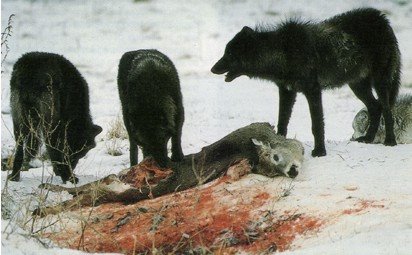. . . Read the entire survey here. When this surfaced several days ago, Obama disclaimed any knowledge of the answers on the survey. He stated that his staff had acted on his behalf. Yet now we find out he was interviewed by the Independent Voters of Illinois — Independent Precinct Organization on the survey the day after it was submitted and that he then submitted an amended version (linked above) with his hand written notes in the margins. His response when approached with that information is incredibly lawyerly - even the hand written notes "do not prove" that he "completed, approved — or even read — the . . . questionnaire." He is sounding more like Slick Willie by the moment. Read the whole story at the Politico.  Not long ago, Obama asked America to believe that he sat in the pews of Trinity United Church of Christ with his family for twenty years, yet never once heard the vile racism and anti-Americanism spewed by Rev. Wright. And now he asks us to make a similar blind leap of faith as regards a 1996 survey ascribing to Obama very left positions.
Not long ago, Obama asked America to believe that he sat in the pews of Trinity United Church of Christ with his family for twenty years, yet never once heard the vile racism and anti-Americanism spewed by Rev. Wright. And now he asks us to make a similar blind leap of faith as regards a 1996 survey ascribing to Obama very left positions.
______________________________________________________
In 1996, Obama was sent a survey to complete by a political organization, Independent Voters of Illinois — Independent Precinct Organization, as regards his run for the Illinois State Senate. The answers portray a candidate running hard to the left on every issue. For example:
Finance
. . .
7 . Do you support vouchers or other means of public funding for private or parochial
schools? No.
. . .
Health & Human Services
. . .
24. Do you support:
a. Medicaid funding for abortions? Yes.
b. insurance coverage of abortions for state employees? Yes.
c. parental consent/notification for minors seeking abortions? Depends on how
young - possibly for extremely young teens, i.e. 12 or 13 year olds.
d. any other restrictions on abortions. No.
. . .
Criminal Justice
33. Do You support:
a. admissibility of illegally obtained evidence? No.
b. electronic eavesdropping? No.
c. police radar? Yes, unless it is abused.
. . .
e. state censorship of the arts? No
34. Do you support:
a. capital punishment? No.
b. criminal prosecution ofjuveniles as adults? No.
c. mandatory sentencing? No
d. work release, home monitoring, other alternatives entencing? Yes.
35. Do you support state legislation to:
a. ban the manufacture, sale and possession of handguns? Yes.
b. ban assault weapons? Yes.
c. mandatory waiting periods and background checks? Yes . . .
Unlike Obama's 20 year association with Rev. Wright, this is one Obama could well argue away on the basis of the fact that he has had more than a decade to ponder these issues. But Obama instead is asking us to believe what would seem, on the face of these facts, to be an impossibility.
Two months ago, Obama was a tabula rosa and the question was what is this man's character. We know much more today. The question now is whether America is ready to willingly suspend disbelief and pull the lever for Obama anyway.
Monday, March 31, 2008
Survey Says?
Posted by
GW
at
Monday, March 31, 2008
2
comments
![]()
Labels: Barack Obama, obama, survey
Taheri Sees An Iranian Hand In Basra
It was bound to happen and may well be happening right now: a war between the Islamic Republic in Iran and the new Iraq. Read the entire article. Iranian columnist Amir Taheri opines on the influence in Basra and their extensive support for the rebels in Basra.
Iranian columnist Amir Taheri opines on the influence in Basra and their extensive support for the rebels in Basra.
____________________________________________________
This today from Amir Taheri writing in the NY Post:
Much of the media have portrayed the latest battles for Basra, and attempts by armed groups to undermine the recently improved security in Baghdad, as a power struggle among rival Shiite factions.
In this analysis, three Shiite factions - the Fadila (Virtue), the Dawa (The Call) and the Islamic Supreme Council of Iraq - that support Prime Minister Nouri al-Maliki's coalition government are trying to disarm the remnants of the Mahdi Army of the elusive mullah Muqtada Sadr.
But that explanation has several problems.
To start with, it is the regular Iraqi army - not any Shiite armed faction - that is doing the fighting in Basra. To underline that point, Maliki went to Basra to supervise operations personally.
And the kind of fighting witnessed in Basra is different from the usual militia operations.
This is a war of position, with units acting as detachments of a regular army trying to deny the Iraqi government forces control of specific territories. The fighters defying the Iraqi army may be Iraqi irregulars, even nominal members of the Mahdi Army - but those leading them are acting as textbook regular-army commanders.
At least some of the officers in charge of the rebel units may be seconded from Iran's Islamic Revolutionary Guard Corps as part of a broader plan to control the Basra region, and thus the lifeline of the Iraqi economy.
. . . The type of weapons used in both Basra and Baghdad also suggests at least some outside involvement. The rebels in Basra are using a large number of armored vehicles to move men and materiel around - something no other Shiite militia, and certainly not the Mahdi Army, had ever done. They're also using heavy artillery, mobile rocket launchers and a sophisticated communications system unavailable to militias.
Elements of the Mahdi Army may provide the visible face of the rebellion, but there is no evidence that the militia (supposing it even still exists as an organized force) is the sole star of this show.
Sadr, after all, has extended the ceasefire he declared six months ago - and, in a recent letter, admitted that he had failed to "liberate" Iraq and create an "Islamic society." Last week, he issued another statement calling for a political settlement in Basra - a far cry from the bellicose noises made by these rebels with the help of Iranian state-owned media.
Spending most of his time in Iran, Sadr is now preparing to claim a theological position within the Shiite hierarchy - an ambition that cannot be realized through gunfights in the streets of Basra and Baghdad.
One other notable fact: Whoever is running the show on the rebel side has been able to devise a battle plan that included simultaneous attacks along a north-south axis that includes Baghdad, al-Amarah and Basra. No other Iraqi militia group, Shiite or Sunni, has had the resources to stage such a campaign before.
The rebels are trying to retain areas that connect Basra, a vast urban sprawl, to the Shatt al-Arab, an estuary that forms part of the border between Iran and Iraq. If the Iraqi government is kept out of these areas, Iran would control both banks of the strategically vital waterway. Iran has already occupied several islands in the waterway facing Basra, using them as advance observation posts.
. . . Visitors to Basra since Saddam's fall have often been struck by the massive "Iranian" presence there. Much of this consists of large numbers of Iraqi Shiites, known as mua'aweddin (returnees), who have come home after years of exile in Iran. There are also those who hold both Iranian and Iraqi nationality. Known as muzdawajun (double nationals), they are often accused of being loyal to Shiism rather than any secular concept as a nation state.
Why has Basra, a relatively calm place for the last five years, heated up now?
One reason may be the British decision last year to withdraw from the city. This left a vacuum that the new Iraqi army and police were unable to fill immediately. Iran may have seized the opportunity to try to grab as much influence and presence as it could - both via Shiite militias (including the Mahdi Army) that it has financed for years and by sending large numbers of operatives across the border.
. . . Both sides may simply be interested in testing the waters at this stage. But the war over who will shape the future of Iraq, indeed of the Middle East as a whole, is in its early stages.
Posted by
GW
at
Monday, March 31, 2008
2
comments
![]()
Labels: Basra, Iran, Iraq, irgc, Khamenei, Mahdi Army, Qods Force, Sadr
Sadr Criticizes Iran, the ISCI Meets Iran, & Maliki Continues The Offensive
One day after Muqtada al Sadr, the leader of the Mahdi Army, called for his fighters to abandon combat, the fighting in Basrah has come to a near-halt and the Iraqi security forces are patrolling the streets. While Sadr spokesman said the Iraqi government agreed to Sadr's terms for the ceasefire, Prime Minister Nouri al Maliki has said the security forces will continue operations in Basrah in the south. Meanwhile, the Mahdi Army took heavy casualties in Basrah, Nasiriyah, Babil, and Baghdad over the weekend, despite Sadr's call for the end of fighting. Read the entire article, there is much more. Feeling the heat of the recent offensive against his forces around Iraq, Muqtada Al Sadr, who has long been suspected of receiving support from the Iranian government, decided to publicly condemn the Iranian supreme leader Ayatollah Khamenei. Read the entire article. The more the situation in Iraq clarifies, the murkier it becomes. That said, this appears mostly positive from the U.S. standpoint. To call Iraqi politics byzantine is an oversimplification. Maliki's Iraqi government appears the clear winner at this point, as Sadr has backed down in Basra and elsewhere in Iraq. This matter is far from over as Maliki continues to demand that the militias in Basra hand over their weapons and appears ready to force the issue. And now Sadr has lashed out at Iranian intervention in Iraq.
To call Iraqi politics byzantine is an oversimplification. Maliki's Iraqi government appears the clear winner at this point, as Sadr has backed down in Basra and elsewhere in Iraq. This matter is far from over as Maliki continues to demand that the militias in Basra hand over their weapons and appears ready to force the issue. And now Sadr has lashed out at Iranian intervention in Iraq.
_____________________________________________________
PM Maliki welcomed the unilateral ceasefire called by Sadr (see here) and there is some indication that he is considering or has agreed to calls for at least a partial amnesty of Mahdi Army members currently being held by the government. Nonetheless, Maliki is moving more forces into Basra and fully intends to disarm the militias in Basra to the extent possible. Further, members of the rival Shia party, ISCI, met with the head of Iran's Qods force to ask them to stop supplying Sadr's Mahdi militia. This from Bill Rogio at the Long War Journal:
Maliki was clear that operations would continue in the South. "The armed groups who refuse al Sadr's announcement and the pardon we offered will be targets, especially those in possession of heavy weapons," Maliki said, referring to the 10 day amnesty period for militias to turn in heavy and medium weapons. "Security operations in Basra will continue to stop all the terrorist and criminal activities along with the organized gangs targeting people."
The Iraqi military said it was moving in more forces into the south after admitting it was surprised by the level of resistance encountered in Basrah. "Fresh military reinforcements were sent to Basra to start clearing a number of Basra districts of wanted criminals and gunmen taking up arms," said Brigadier General Abdel Aziz al Ubaidi, the operations chief for the Ministry of Defense. "Preparations for fresh operations have been made to conduct raids and clearance operations in Basra... the military operations would continue to restore security in Basra."
The reasons behind Sadr's call for a cessation in fighting remain unknown, but reports indicate the Mahdi Army was having a difficult time sustaining its operations and has taken heavy casualties. "Whatever gains [the Mahdi Army] has made in the field [in Basrah], they were running short of ammunition, food, and water," an anonymous US military officer serving in South told The Long War Journal. "In short [the Mahdi Army] had no ability to sustain the effort.
TIME's sources in Basrah paint a similar picture. "There has been a large-scale retreat of the Mahdi Army in the oil-rich Iraqi port city because of low morale and because ammunition is low due to the closure of the Iranian border," the magazine reported.
McClatchy Newspapers indicated a member of the Maliki's Dawa party and the leader of the Badr Organization, the military wing of the Islamic Supreme Council of Iraq, traveled to Qom, Iran to lobby Qods Forces officers to get Sadr to halt the fighting. The trip "had two aims, lawmakers said: to ask Sadr to stand down his militia and to ask Iranian officials to stop supplying weapons to Shiite militants in Iraq." The two men met with Brigadier General Qassem Suleimani, the commander of Iran’s Qods Force, the foreign special operations branch of the Iranian Revolutionary Guards Corps.
The Mahdi Army has also taken high casualties since the fighting began on March 25. According to an unofficial tally of the open source reporting from the US and Iraqi media and Multinational Forces Iraq, 571 Mahdi Army fighters have been killed, 881 have been wounded, 490 have been captured, and 30 have surrendered over the course of seven days of fighting. . . .
The LWJ does not mention the Iranian response to the ISCI meeting, but it must have been positive as it appears that Sadr has now publicly denounced Iran. This from Meir Javedanfar at Pajamas Media:
His verbal attack was an unprecedented turn of events for the young Shiite, who for the last year has been traveling to Iran on several occasions to complete his theological studies in order to become an Ayatollah himself. Western security sources have long suspected that these trips have also been used in order to receive financial assistance from Iran, and to coordinate the Mahdi army’s military and political strategy with the leadership in Tehran.
There are important reasons behind his offensive against Khameini.
Primarily, Al Sadr is furious at the fact that members of the Islamic Supreme Council of Iraq (ISCI), have joined the Iraqi army’s offensive against his forces in important areas such as Baghdad and Basra.
ISCI, which is led by Ayatollah Abdul Aziz al-Hakim has the support of middle and upper class Shiites in Iraq, while Al Sadr’s Mahdi army has the backing of poor Shiites. Al Sadr is not only upset because ISCI has decided to turn its guns against fellow Shiites, but also at the fact that ISCI has been the recipient of a larger amount of aid from Tehran than his organization. This may lead Al Sadr to believe that ISCI has embarked on this adventure, with Tehran’s blessing. This belief would explain why, during his controversial interview with Al Jazeera on Saturday night, Al Sadr condemned what he called “Iranian intervention in Iraq’s security and politics.”
Presumably, his hope is that by condemning and distancing himself Tehran, he could get more local grass root support inside Iraq; something which he could use later on in order to stage a political and military comeback.
While its too early to declare victory and celebrate, nevertheless, Al Sadr’s recent move can be considered as an achievement for the US, in its ongoing struggle with Tehran over influence in Iraq.
Until now, Tehran has been masterfully controlling both Al Sadr and ISCI allies as a tool to increase its influence. Whether or not Washington sanctioned Maliki’s recent operations against the Mahdi army; the rift created between Iraq’s two major Shiite organizations is making Iran’s Iraqi adventure more cumbersome at least in the immediate future.
. . . For now, Washington and Al Maliki’s government must use the recent military setbacks for Al Sadr as an opportunity to reach out to poor Iraqis who form the basis of Al Sadr’s support. Unless economic assistance is provided to improve their lives, and security, Tehran could step in. . . .
It would not be the first time that Tehran has supported two opposing sides in a conflict, and it would not be the last either.
Posted by
GW
at
Monday, March 31, 2008
0
comments
![]()
Labels: baghdad, Basra, Hakim, Iran, Iraq, ISCI, Khamenei, Mahdi Army, Qods Force, Sadr, US
Sunday, March 30, 2008
Well, That Was Quick
Shiite cleric Moqtada al-Sadr Sunday ordered his armed militia to get off the streets in Basra and to cooperate with the government to restore security. In exchange, he asked the government to release prisoners and declare an amnesty. Read the entire article. Maliki would be as foolish to stop now as the U.S. was in allowing Sadr to survive in Najaf in 2004. Unfortunately, Sadr is somewhere in Iran, far from coalition crosshairs at the moment. None-the-less, Maliki needs to disarm Sadr's militia in Basra and establish government control. Now is not the time to blink.
No sooner had I written below that al Sadr would not push an uprising in Iraq than he should wave the unofficial French flag and sue Maliki for peace.
___________________________________________________
Perhaps our MSM's reports of an Iraqi Army quagmire in Basra were a trifle premature. The offensive in Basra and the response to Sadrist uprisings in Baghdad have resulted in several hundred Mahdi Army casualties. And now Sadr has ordered his militia off the streets and sued for a cease fire. This from the Washington Post:
The Iraqi government quickly welcomed the comments as a move toward restoring calm.
A spokesman for the government, Ali al-Dabbagh, said on state-run Iraqi television that the government considered Sadr's statement a "positive step."
He repeated government assertions that the military operations in Basra were not aimed at Sadr's followers. "We expect all those who claim that they are followers of the Sadr movement to heed this call and those who do not shall be treated as outlaws and criminals."
In his statement, Sadr made the offer in exchange for the government stopping "random, illegal raids and arrests." He also called on the government to declare a general amnesty and to release prisoners taken during the fighting, especially his followers.
Sadr's statement stopped short of directing fighters to turn over weapons to Iraqi security forces, which has been a key demand of the government.
The move came after Sadr over the weekend told his supporters to ignore the government's orders to disarm.
. . . Prime Minister Nouri al-Maliki, who launched the offensive Monday against armed groups, vowed "to stand up to these gangs in every inch of Iraq."
Maliki denied accusations that the Iraqi government was trying to undermine political rivals before provincial elections this year. "We came to Basra to fight the outlaws and the smugglers, not to confront a party or a political group, because we do not seek political confrontation," he said.
. . . Sadr, speaking in a television interview aired Saturday, said the Iraqi government "is far from the people and is dealing with them in a dictatorship way." He also said his militia's "strategic objective" was "the liberation of Iraq from the occupier."
In the interview, Sadr called for a demonstration April 9 against the U.S. occupation of Iraq. He also rejected accusations that he was being supported by Iran, saying, "I am an independent in that I am not a political or military extension to Iran or any others." . . .
Posted by
GW
at
Sunday, March 30, 2008
1 comments
![]()
Labels: Basra, ceasefire, Iran, Iraq, Maliki, quagmire, Sadr
Analyzing & Spinning The Offensive in Basra
The most intense fighting in Iraq in months had the ring of the familiar. Another battle against followers of a rebel Shiite cleric. Fighting in the south that spread to other cities. Read the entire article. The MSM will continue to try and spin this in the upcoming month, but there is no question the Iraqi army and the U.S. will prevail in the effort both in Basra and to any other areas in which the Sadrists rise up. A second decimation of the Sadrists will hurt Iranian interestes - and that is indeed very good for the long term peace and security of Iraq. It will mean that when this offensive is concluded in 30 or 60 or 90 days, Iraq will be a safer place indeed - and the Iraqi central government will have established its bona fides in a way only taking on the Sadrists could establish. The Basra Offensive will not reignite major hostilities in Iraq and to call the Iraqi Army "bogged down" in Basra just a few days into the Iraqi government's offensive to retake the city is ridiculous.
The Basra Offensive will not reignite major hostilities in Iraq and to call the Iraqi Army "bogged down" in Basra just a few days into the Iraqi government's offensive to retake the city is ridiculous.
_________________________
Much of the MSM is trying to shoehorn the Iraqi offensive against Sadr - and its spillover outside Basra - into its anti-war meme that Iraq is a quagmire, etc. To the contrary, it is absolutely necessary both to take control of Iraq's major port city and to exert control over their country. The offensive in Basra is necessary to bring peace to the country, and it is doubtful that Sadr will long risk open warfare again with the U.S.
Sadr, if you will recall, made a powerplay in 2004, seeking to defeat the U.S. in an uprising against U.S. forces that ended with the decimation of his Mahdi Army in Najaf in 2004. Sadr reconstituted a militia with support from Iran. In 2006, following al Qaeda in Iraq's bombing of the Mosque of the Golden Dome, Sadr’s forces, heavilly supported by Iran, engaged in a brutal campaign against Sunnis that led Iraq to the brink of civil war and gave a large part of the impetus for the surge. Indeed, it is clear that Iran is attempting to set up Sadr's Mahdi militia along the lines of Hezbollah and duplicate Iran's control of Iraq much as they control Lebanon.
Fifteen months ago, our MSM was speculating that Maliki would not authorize any action against Shia militias - and in particular Sadr's miitias - that were almost as problematic as al Qaeda. PM Maliki was portrayed as beholden to Sadr and, indeed, he had protected Sadr's militia from U.S. offensives. The NYT continued to harp on that meme long after it became apparent that Maliki had broken with Sadr and had come to view Sadr as a major obstacle towards governing Iraq.
Sadr, for his part, pulled back from any direct confrontation with U.S. forces during the surge. He has, however, made a bid for control of several cities in the south, with the most important being Basra. The British never exerted real control over the city, and their withdraw led to a complete vaccum that the various Shia militias attempted to fill. This was much more along the lines of gangland warfare to control the crime in 1920's Chicago than anything else - it was a campaign of assassinations and intimidation with the prize being control of Iraq's major port and the truckloads of cash that could be skimmed from the theft and blackmarket sales of oil. A recent NYT article provides an excellent and thorough review of the situation in Basra as of February of this year.
Now you have much of the MSM attempting to claim that the battle in Basra has returned Iraq back to open warfare and that, because Iraqi forces have not yet cleared the city of Basra five days after the offensive began, the offensive in Basra has stalled and the Iraqi military is losing. Both are ridiculous claims.
As to the latter, war is not a video game where the fighing ends in an hour. Offensives to force an enemy from a city - MOUT operations - are arguably the most difficult and time consuming of all military operations. In World War II, MOUT operations ate up entire divisions over a period of months. In Vietnam, during the TET offensive, it took nearly thirty days to drive the NVA out of Hue. Proclaiming anything about the Basra offensive after five days shows more than anything that our current crop of journalists lack any military experience and any understanding of military history.
As to the former claim, that the offensive in Basra will ignite much further unrest in Iraq, that ignores the necessity of establishing central government control over Basra and it mispercieves the potential ramifications. This is not 2004 and Sadr is no longer viewed as a bulwark against Sunnis nor a necessity for delivery of services. He does not enjoy large scale support throughout the Shia population. A NYT "news analysis" today, though rife with speculation, nonetheless explains the situation adequately:
But as the week came to a close, it was clear that the current fighting in the southern city of Basra and the clashes in Baghdad had some fundamental differences from the battles in Najaf and Baghdad that plagued the American military in 2004.
For starters, the Shiite rebels are fighting mainly Iraqi soldiers, rather than Americans. Their leader, Moktada al-Sadr, is not defending against attacks from a redoubt inside the country’s most sacred shrine, but is issuing edicts with a tarnished reputation from an undisclosed location, possibly outside the country. And Iraq’s prime minister, a Shiite whom Americans had all but despaired would ever act against militias of his own sect, is taking them on fiercely.
The differences represent a shift in the war, whose early years were punctuated by uprisings against Americans by a vast, devoted group of Mr. Sadr’s followers, who were largely respected by Shiites. As their tactics veered into protection rackets, oil smuggling and other scams, Mr. Sadr’s followers too began to resemble mafia toughs more than religious warriors, splintering and forming their own gangs and networks, many beyond Mr. Sadr’s direct control.
Even some Sadrists seemed to understand the toll their methods were taking on their popular appeal, which has become increasingly important as provincial elections draw near.
. . . Basra residents were groaning under daily assassinations and kidnappings and a wholesale policy of intimidation. By the time the fighting started in Basra on Tuesday, that discontent had spread to a large swath of Iraqi society — including some of its largely Shiite army and police. The shift opened up a space for Prime Minister Nuri Kamal al-Maliki to move against the Mahdi Army. And while it is far from clear that his effort will succeed — reports of soldier and police surrenders abound — the mere fact that he is trying is new.
. . . [A] strong note of support for Mr. Maliki’s actions could be heard in the words of some Iraqis interviewed this week, who cast his success as crucial to the future of their country.
“If Mahdi Army wins this war, that means Iraqi will be destroyed,” said a Shiite businessman from Baghdad. “That means Moktada will be president and it will be a stick in the eye of the Americans. It will be a religious country, an extreme country.”
The Mahdi Army’s image is considerably changed from 2004, when its members were seen as Shiite Robin Hoods, protecting undefended neighborhoods, helping distribute cooking gas, and standing up to what many Shiites saw as an act of American aggression, when tanks rolled into Sadr City, a Shiite neighborhood in Baghdad. But during the sectarian violence and terror of the ensuing years, the militia began breaking down into a patchwork of groups, some involved in death squads, others in theft and corruption.
A Western official with knowledge of Iraq’s security forces said the current situation differed from earlier stand-offs because the Iraqi Army finally has the resources to take on the militiamen.
The official said Mr. Sadr’s followers “overplayed their hand” and may have fatally damaged his credibility. Mr. Sadr’s lack of control, the official said, has forced Mr. Maliki to act, and to act decisively.
“The militia was indifferent to the cease-fire. They didn’t do what Sadr told them to do, to hold peaceful demonstrations only and no attacks,” he said. “They just didn’t do that, and they’re making him look like he’s out of control.” . . .
Posted by
GW
at
Sunday, March 30, 2008
1 comments
![]()
Labels: assassination, Basra, black market, intimidation, Iran, Iraqi Army, mafia, Maliki, MOUT, oil, port, Sadr
Interesting Posts From Around The Web - 30 March 2008

Art: The Conversion of Saul, Michaelangelo, 1545
Best line of the day, compliments of Soccer Dad: Asked about the controversy Wright's comments have created, Republican John McCain said while campaigning in Denver: "I can only say that I am sure, knowing Senator Obama, that he must be recovering now from decades of amnesia."
The Iraqi’s Basra offensive has tremendous ramifications not merely for the Iraqi government, but also the American and British.
The importance of winning in Iraq in respect to what it means for the larger defeat of Wahhabi radicalism cannot be overstated. The effect of our efforts in Iraq are clear, though the left refuses to acknowledge them.
Is peak oil a myth? "America is sitting on top of a super massive 200 billion barrel oil field that could potentially make America Energy Independent . . . Thanks to new technology the Bakken Formation in North Dakota could boost America’s Oil reserves by an incredible 10 times . . ." The ramifications of this are huge.
The greatest long term threat to Britain is insanely out-of-control immigration – a topic of discussion and criticism the left in Britain largely made taboo. Perhaps that is changing. It desperately needs to change, and such discussion needs to go beyond merely short term costs and benefits.
When will Hollywood cease with the anti-war bombs and stop the loss?
Censoring the Geert Wilder’s movie Fitna in essence gives radical Islamists veto power over freedom of speech in the West and tells them that if they act sufficiently violent and lawless, the West will cave to their demands. That is not a message we should ever be sending, and if the EU and Ban Ki Moon do not realize that, they are truly fools.
Well, that was quick. It is now established – Ban Ki Moon is a particularly misguided fool.
The opposite of foolishness is wisdom – and in this case, pearls of conservative wisdom.
Fitna may well pall in comparison to the next anti-Islam film, this being produced by Danish ex-Muslim politician Ehsan Jami on the life Mohammed, including the consummation of his marriage to a nine year old.
Meanwhile, in America, our Wahhabi Islamists operate a fifth column with CAIR.
I appreciate the Obama candidacy for breaking the liberal taboo against holding black racists responsible for their actions. It is unfortunate that the attack on this taboo is an unintended consequence of Obama’s candidacy.
The nipple ring controversy heats up. This was a ridiculous act by several TSA employees who, unless they can point to a specific regulation justifying their actions, need to be cashiered. And as the picture indicates, how could such a tasteful piece of decoration possibly present a threat to homeland security? Terrorist tit rings indeed.
Not that our INS personnel are any more competent than their TSA counterparts. This story is particularly troubling.
McCain may not be a self-proclaimed economics guru, but the straight-talk he is delivering on the mortgage crisis seems to be quite on point.
Posted by
GW
at
Sunday, March 30, 2008
2
comments
![]()
Labels: art, Bakken Formation, Britain, CAIR, censorship, Clinton, FITNA, Geert Wilders, Hollywood, immigration, INS, Iraq, McCain, michaelangelo, nipple rings, obama, oil, the conversion of saul, TSA, UK
Friday's Verse (a bit late)

Art: The Rape of Europa, Vecellio Tiziano, 1562
The Second Coming
Turning and turning in the widening gyre
The falcon cannot hear the falconer;
Things fall apart; the centre cannot hold;
Mere anarchy is loosed upon the world,
The blood-dimmed tide is loosed, and everywhere
The ceremony of innocence is drowned;
The best lack all conviction, while the worst
Are full of passionate intensity.
Surely some revelation is at hand;
Surely the Second Coming is at hand.
The Second Coming! Hardly are those words out
When a vast image out of Spiritus Mundi
Troubles my sight: somewhere in sands of the desert
A shape with lion body and the head of a man,
A gaze blank and pitiless as the sun,
Is moving its slow thighs, while all about it
Reel shadows of the indignant desert birds.
The darkness drops again; but now I know
That twenty centuries of stony sleep
Were vexed to nightmare by a rocking cradle,
And what rough beast, its hour come round at last,
Slouches towards Bethlehem to be born?
- William Butler Yeats, 1920
Posted by
GW
at
Sunday, March 30, 2008
1 comments
![]()
Labels: art, poetry, The Rape of Europa, the second coming, Tiziano, Yeats
Saturday, March 29, 2008
Geert Wilder's FITNA (Update 2)
Dutch politician Geert Wilders has released FITNA, his long anticipated film on the Koran.
Update: The feed that I had from YouTube has been pulled. I will continue to update this post with new and working feeds for the video. This below is through Google:
Part I
Part II
You can see an interview of Geert Wilders about this film here.
Release of the film has resulted in wholly predictable threats of violence from Islamists and the rogue Islamic state of Iran. The videos above were originally posted on Live Leak, but were later removed by them due to threats to their staff.
The efforts of radical Muslims to limit freedom of speech in the West is intolerable. Under no circumstances can or should we give so much as inch. To the contrary, each push to limit such speech should be met not merely with refusal, but with anger and an ever more determined effort to expose that which the Islamists wish to hide from our populace. And the movement to limit freedom of speech in the West as regards Islam comes not just from extremists making death threats, but also from many "mainstream" organizations, including the UN as detailed in a post below.
Our first and best defence to the insidious metasticization of radical forms of Islam in the West is not simply to zealously guard our rights of freedom of speech, but to fully exercise those rights to educate our friends, neighbors and leaders. The true power of free democracies lies in an educated and energized populace. In that vein, I salute Mr. Wilders for his courage in making this film. He has led us on a major step down a long road we must take, or face falling to the medieval poison that is Wahhabism and Khomeinist Shia'ism.
Posted by
GW
at
Saturday, March 29, 2008
1 comments
![]()
Labels: FITNA, Geert Wilders, Islam, Koran, Live Leak
Friday, March 28, 2008
Another UN Obscenity (Updated)
a. It is okay to make slaves of polytheists, such as Christians, and to take their lands and possessions. This is taught to children in Saudi textbooks. Question: “One eyed hooked Imam Hamza Mesri said muslims can kill British infidels and have sex with their wives and daughters, Do you agree with him?” c. Wahhabi dogma holds it permissible to murder anyone - women, children and innocents - if it is somehow in furtherance of jihad. It is the duty of all Muslims to take part in jihad and to impose Sharia throughout the world. 4. Wahhabi cleric Omar Bakri, in praising the mass murder of Americans at the hands of al Qaeda suicide terrorists, listed numerous justifications for 9-11, including among them attacks on Muslims during the Crusades dating back half a millenium before America was formed as a nation. He is hardly unique. Radical Islamists regularly recite an endless litany of grievances upon which to justify their violence, and nothing that we in the West can do - including a complete and immediate withdrawal from the entire Middle East - would erase the vast majortiy of those grievances. . . . Noting the Declaration adopted at the 34th Session of Islamic Conference of Foreign Ministers at Islamabad, Pakistan in May 2007, which condemned the growing trend of Islamophobia and systematic discrimination against the adherents of Islam as well as emphasized the need to take effective measures to combat defamation of religions, This truly is an obscenity. If President Bush still had the same courage of his convictions with which he entered office, then he would defund the UN unless and until meaningful reforms are initiated. As I have written extensively, the last thing we need to do is to limit criticism of Islam if we hope it ever to mature. To the contrary, as former Wahhabi terrorist Tawfiq Hamid has said, the public needs to become fully educated about the danger Wahhabi Islam poses to the world. That will not happen if the UNHRC has any say. The UN Human Rights Council is an an outrage. Their latest obscenity is passage of a Declaration asking UN member nations to criminalize criticism of Islam, claiming such criticism to be itself a human rights violation.
The UN Human Rights Council is an an outrage. Their latest obscenity is passage of a Declaration asking UN member nations to criminalize criticism of Islam, claiming such criticism to be itself a human rights violation.
_______________________________________________________
The UN Human Rights Council (UNHRC) is now little more than a mouthpiece for Wahhabi Islamists who seek to use the freedoms of the West to destroy it. The attempt to reform the UNHRC two years ago failed utterly. The UNHRC's latest act is to call for the criminalization of any criticism Islam, to make the canard that Islam and terrorism are unrelated an irrebutable presumption, and to require educational programs in schools to whitewash Islam in the West. The declaration was authored and submitted to the UNHRC by the Organizaiton of the Islamic Conference (OIC). The declaration purports to apply to all religions - but names only Islam.
Islam is suffering today as Wahhabi dogma has become transcendent within the religion on the back of Saudi petrodollars. As Churchill observed nearly a century ago, Wahhabism bears "the same relationship to orthodox Islam as the most militant form of Calvinism would have borne to Rome in the fiercest times of [Europe's] religious wars." There are people and groups in the world trying to reform the Islamic religion and bring it out from under the radical 7th century interpretations of Wahhabism into the 21st century. The UNHRC would prevent that. This Declaration by the UNHRC, were it actually to become a part of international law, would wholly derail efforts to modernize Islam. Further, the UNHRC would give legal cover to the most intolerable aspects associated with Islam. These aspects include such real human rights violations as:
1. Anyone wanting to change their religion from Islam to another religion is, at best, prevented from doing so by the law of many "Islamic" states. If they do change their religion, they are considered an apostate and subject to execution, particularly in the Wahhabi and related Deobandi sect.
2. Religion in many Islamic states is severely circumscribed - either there is no freedom of religion, or it is very limited. For example, one cannot carry a bible or cross into Saudi Arabia or even say a prayer within the country. No churches can be built in Turkey. In Pakistan, the charge of blasphemy against the Prophet is being used to steal vast tracts of land from Christians. Christians are being systematically driven from Palestinian controlled portions of the Holy Land. Christains and Jews are second class citizens in Muslim countries.
3. According to the Wahhabi interpretation of Islam - Saudi Arabia's radical version of Islam being exported throughout the world at a breakneck pace on the back of Saudi petrodollars:
b. A Wahhabi Imam in Britain, Abu Hamza, recently said it was lawful to kill polytheists and rape their wives and daughters. Another Wahhabi Imam, Abdul Makin of East London Mosque, was asked about this statement. The following exchange was recorded by ex-Muslims in Britain who run the site Islam Watch:
Imam: “It is not what Imam Hamza said nor is there a question of my agreeing with him or not. It is in Quran thus those are Allah’s orders.”
Question: “But why would Allah tell muslims to kill and rape innocent non muslims?”
Imam: “Because Non-muslims are never innocent, they are guilty of denying Allah and his prophet. If you don’t believe me, here is the legal authority, the top muslim lawyer of Britain, Anjem Choudhary.”
Question: “But our Prophet was sent as a mercy for all the humanity; he never hurt any body in his life”
Imam: “Yes he never hurt a muslim in his life. But Allah said non-muslim are lowest beasts and worst creatures in ayas 8.22,8.55,95.5 and 98.6 and muslim are ordered to kill them."
Question:” But did prophet approve of killing them and raping their wives?”
Imam: “Yes he did. He not only approved of such acts, he and his sahabas practiced it regularly under Allah’s orders. He was helpless in it... If you don’t believe me , you have to believe sahih hadiths. . . .
d. Spreading alternative interpretations of the Koran at odds with Wahhabi dogma is apostacy, and is to be punished by death.
e. Saudi school curricula, being exported throughout the world, is incredibly racist, violent and xenophobic.
f. Women cannot work without permission, and they cannot be out in public unless accompanied by a male family member. They cannot vote. These prohibitions are all based on Wahhabi Koranic interpretations.
g. Numerous Wahhabi clerics have issued fatwas (see here) calling for mass murder and genocide againt the U.S., Christians, Jews and the West in general, with the one fatwa explicitly calls for the slaughter of over 2,000,000 children in the West.
5. It is okay for Muslim men to marry outside of their faith, but it is not permissible for Muslim women to do so.
6. Testimony is given twice the legal weight in Sharia Courts if you are a Muslim (of the particular sect dominant in the state) and a male.
7. Homosexuality is deemed a capital offense and gays are executed.
8. Targeting civilians and using human shields are hallmarks of Islamic terrorists and are justified by the Islamists on interpretations of the Koran - as is suicide bombing.
9. Wahhabi organizations characterize any criticism of their faith or even the acknowledgment that Islamic terrorists are motivated by their religion to acts of animalistic violence as Islamophobia - a term that means concern about Islam is irrational.
10. Forced marriage, pedophillia with marriage to girls as young as nine, polygamy, honor violence and stoning for adultery and prostitution are all evils associated with Islam as practiced in several of the major sects. All need to be exposed and kept wholly out of Western culture.
11. In countries that already have laws limiting criticism of Islam, we have seen the UK issue a warrant for the arrest of a British blogger for critizing Islam, and in Canada, Mark Steyn was charged with a human rights violation for merely quoting a Wahhabi cleric.
12. Since 9-11, Islamists have carried out close to 11,000 terrorist attacks throughout the world.
The above list is hardly exhaustive, and you can find much more in video form watching Geert Wilders' FITNA, posted here. There are huge problems in the Islamic world, and there is a battle on going for the heart and soul of Islam that truly is existential. The Wahhabists are doing all that they can to win that battle, and they have the luxury of nearly unlimited funding and a West that both allows tremendous freedoms and is largely ignorant of the threats posed by Wahhabi Islam. This is a battleplace of ideals, and on that field of battle, the greatest threats Wahhabism faces are bright lights and criticism.
Bear it all in mind as you review the official declaration (see here) of the UN Human Rights Council. Some of highlights of the delcaration and its preamble are:
. . . Recalling the joint statement of OIC, EU and the UN Secretary General of February 7, 2006 which, inter alia, recognized the need, in all societies, to show sensitivity and responsibility in treating issues of special significance for the adherents of any particular faith, even by those who do not share the belief in question,
. . . Noting with deep concern the increasing trend in recent years of statements attacking religions, Islam and Muslims including in human rights forums, [the HRC:]
1. Expresses concern at negative stereotyping of all religions and manifestations of
intolerance and discrimination in matters of religion or belief;
2. Expresses deep concern at attempts to identify Islam with terrorism, violence and human rights violations and emphasizes that equating any religion with terrorism should be rejected and combated by all at all levels;
3. Notes with deep concern the intensification of the campaign of defamation of religions and the ethnic and religious profiling of Muslim minorities, in the aftermath of the tragic events of 11 September 2001; . . .
5. Recognizes that, in the context of the fight against terrorism, defamation of religions becomes an aggravating factor that contributes to the denial of fundamental rights and freedoms of target groups, as well as their economic and social exclusion; . . .
8. Urges States to take actions to prohibit the dissemination, including through political institutions and organizations, of racist and xenophobic ideas and material aimed at any religion or its followers that constitute incitement to racial and religious hatred, hostility or violence; . . .
11. Further urges all States to ensure that all public officials, including members of law enforcement bodies, the military, civil servants and educators, in the course of their official duties, respect all religions and beliefs and do not discriminate against persons on the grounds of their religion or belief, and that all necessary and appropriate education or training is provided;
12. Emphasizes that, as stipulated in the international human rights law, everyone has the right to freedom of expression, and that the exercise of this right carries with it special duties and responsibilities, and may therefore be subject to certain restrictions but these shall only be as provided by law and are necessary for respect of the rights or reputations of others, or for the protection of national security or of public order, or of public health or morals; . . .
14. Deplores the use of the print, audio-visual and electronic media, including the internet, and any other means to incite acts of violence, xenophobia or related intolerance and discrimination towards Islam or any religion; . . .
Update: Saudi Arabia, which voted for passage of this declaration in the UNHRC on Thursday, recently voted down a similar law that would prevent Saudis from criticizing other religions within their country.
Posted by
GW
at
Friday, March 28, 2008
9
comments
![]()
Labels: Human Rights Council, OIC, Organization of the Islamic Conference, UN
The War On Sadr Begins - & The WP Throws Their Support to Sadr (Updated)
The cease-fire extension issued by Muqtada al Sadr, the leader of the Iranian-backed Mahdi Army, appears to be in jeopardy after the Iraqi government has launched an offensive against the Shia terror group in the southern city of Basrah. Dubbed Operation Knights' Assault, Iraqi security forces have gone on the offensive to wrest control of the strategic oil hub and Iraq's second largest city from Mahdi Army control. The fighting has spread to Baghdad and the southern provinces. Read the entire article here. Update: You can find Michael Yon's take on the hostilities in Basra and the Iranian connection in an MP3 interview with Instapundit here. Maliki decided to launch the offensive without consulting his U.S. allies, according to administration officials. With little U.S. presence in the south, and British forces in Basra confined to an air base outside the city, one administration official said that "we can't quite decipher" what is going on. It's a question, he said, of "who's got the best conspiracy" theory about why Maliki decided to act now. The WP seems to think this offensive came out of thin air. They ignore both the build-up of Iraqi forces, as reported by the LWJ, and the acts that have made the offensive necessary - i.e., the withdrawal of British forces, the increased Iranian inspired violence in Basra by the Mahdi Army, and the fact that the government of Iraq has the right, responsibility and duty to control their sole major port. The WP seems to be deligitimizing the offensive, portraying it as some sort of corrupt political maneuver against innocent Sadrists. To continue: In Basra, three rival Shiite groups have been trying to position themselves, sometimes through force of arms, to dominate recently approved provincial elections. I have no idea who the WP is getting its quotes from, but they are problematic. One, the jump in violence in Basra is primarilly related to the Mahdi army. Two, this government offensive is aimed at "all criminal elements" and to demilitarize the city, meaning it will target elements beyond Sadr's militia. Three, to the extent these other oraganizations are not engaging in assassination, theft and intimidation - and I have seen no reports indicating that the ISCI or Fadhila are doing so as part of regular ongoing operations - then Maliki should be aligned with them. They are part of the democratic process. Four, and perhaps the most galling of this incredibly poor WP report, is that it ignores the fundamental truth that the Iraqi government can, should and must have control of its ports and cities, as well as control Iraq's primary public resource, oil. There is nothing dubious about this offensive. To the contrary, it is absolutely necessary if the government is to ever function. . . . Several Mahdi Army commanders said they had been fighting U.S. forces for the past three days in Sadr City, engaging Humvees as well as the Strykers. By their account, an Iraqi special forces unit had entered Sadr City from another direction, backed by Americans, but otherwise the fighting had not been with Iraqis. The WP repeats that quote and leaves it hanging with no rebuttal - suggesting that the violence in Iraq is solely a function of the U.S. presence. What pure bull. For Iraq to create a functioning democracy, it has always been a question of when rather than if U.S. and Iraqi forces would have to deal with Sadr and his Iranian backed Mahdi militia. It would appear that, despite the six month extension to the cease fire proclaimed by Sadr in February, the time for dealing with the Sadr's Mahdi militia is now.
For Iraq to create a functioning democracy, it has always been a question of when rather than if U.S. and Iraqi forces would have to deal with Sadr and his Iranian backed Mahdi militia. It would appear that, despite the six month extension to the cease fire proclaimed by Sadr in February, the time for dealing with the Sadr's Mahdi militia is now.
_____________________________________________________
Sadr's Iranian backed Mahdi militia is now in open revolt in Basra and Baghdad as well as other areas in the south of Iraq. U.S. forces have joined the fight. The spark for this fight was Prime Minister Nouri al Maliki's order to his army to retake Basra - the major Iraqi port - from the "criminal elements" who are controlling the port as part of an incredibly lucrative enterprise involving theft of oil. Maliki claims that this is not directed at Sadr, yet from the reaction by the Sadrists, there can be little doubt that they form the bulk of the "criminal elements" in Basra and that their major source of funds is now threatened.
This conflict was inevitable. Sadr, alligned with Iran and studying to become an ayatollah based on the Iranian school that requires clerical rule, has been an intensely destabilizing force in Iraq despite his recently declared cease-fires. It has long appeared that Iran wanted to see the Mehdi militia turned into a Hezbollah type of operation with Sadr at its head and loyal to Iran. See here and here. Following the British withdrawal from Basra, the Iranians, working through their Sadr proxies, have been attempting to take control of Basra through a combination of assassinations and intimidation. If there is ever to be a functioning democracy in Iraq, Sadr and his militia must be disarmed, or barring that, destroyed.
And now it has begun. PM Maliki's offensive to retake Basra has lit a larger revolt by Sadrists in Baghdad and throughout cities in the south of Iraq. Sadr himself is calling for a negotiated settlement - something the Iraqi government should not even consider. This from Bill Rogio:
Knights' Assault is an Iraqi-led operation and was ordered directly by Prime Minister Nouri al Maliki, who is in Basrah to direct the operation along with Interior Minister Jawad Bolani. Basrah has seen an uptick in Iranian-backed terror activity since the British withdrew from the city late last year. Political assassinations and intimidation campaigns have been on the rise as the Iranians work to extend their influence in the oil-rich city.
At least 18 Iraqis were killed, including three policemen, and more than 100 were wounded in fighting in the southern city on Tuesday, as Iraqi troops advance to clear neighborhoods controlled by the Mahdi Army. Fighting is reported to have broken out in Baghdad and Al Kut in Wasit province. Curfews have been imposed in Karbala, Wasit, Babil, Diwaniyah, Nasiriyah, and Basrah after fighting between the Mahdi Army and Iraqi security forces broke out in the South.
The Sadrist Bloc, the political arm of the Mahdi Army, has boycotted Parliament and called for general strike and civil disobedience. Muqtada al Sadr has not officially withdrawn from the self-imposed cease-fire.
Mahdi Army forces have also launched mortar and rocket attacks at US and Iraqi bases in Baghdad. On March 25, twelve mortar and rocket strikes were launched at the International Zone, Forward Operating Base Falcon, Forward Operating Base Rustamiyah, and Joint Security Stations Thawra 1 and SUJ. The attacks were launched from Sadr City, a Mahdi Army stronghold in Baghdad. On March 23, 15 civilians were killed during mortar and rocket attacks aimed at the sprawling Coalition military complex southern Baghdad.
US troops are acting in a support role in Basrah and the south, several US military officers told The Long War Journal. The US is providing intelligence, combat support, and air assets to back Iraqi security forces in Basrah and along the Iranian border.
US forces are also actively hunting the Mahdi Army cells in Baghdad conducting the mortar and rocket attacks. Coalition and Iraqi Army forces detained 11 Special Groups operatives believed to be behind a mortar attack on FOB Falcon.
The current Iraqi offensive has been in the works for some time. The Iraqi Army and police have been massing forces in the South since August 2007, . . .
The clashes with the Mahdi Army come just weeks after Muqtada al Sadr admitted failure in Iraq. "So far I did not succeed either to liberate Iraq or make it an Islamic society — whether because of my own inability or the inability of society, only God knows," Sadr wrote to his followers. "The continued presence of the occupiers, on the one hand, and the disobedience of many on the other, pushed me to isolate myself in protest. I gave society a big proportion of my life. Even my body became weaker, I got more sicknesses." . . .
Sadr has called for a negotiated end to the offensive, an offer Maliki has refused, stating "We entered this battle with determination and we will continue to the end. No retreat. No talks. No negotiations." As reported by Reuters, Sadrists have, in addition to engaging in general hositilities in several areas, kidnapped an Iraqi government spokesman and bombed an oil pipeline.
The New York Times and the Washington Post are both spinning their reporting on this, though the latter is the worst. The NYT reports, U.S. forces have flown reconnisance over Basra and have engaged in a bombing run. As the NYT frames this, the U.S. has been "drawn into" the fight in Basra, as opposed to this being how regular operations are envisioned as Iraqi forces stand-up. If things are working as planned, than offensives such as what is occurring in Basra would have Iraqi forces in the lead, supported as necessary by U.S. forces, and especially U.S. air power, a combat multiplier that the Iraqi military cannot yet field.
The Washington Post reporting, which you can find here, is outrageous, spinning off into the arena of supposition, conspiracy theory and anti-American propaganda:
The U.S. officials, who were not authorized to speak on the record, said that they believe Iran has provided assistance in the past to all three groups: the Mahdi Army; the Badr Organization of the Islamic Supreme Council of Iraq, Iraq's largest Shiite party; and forces loyal to the Fadhila Party, which holds the Basra governor's seat. But the officials see the current conflict as a purely internal Iraqi dispute.
Some officials have concluded that Maliki himself is firing "the first salvo in upcoming elections," the administration official said.
"His dog in that fight is that he is basically allied with the Badr Corps" against forces loyal to Sadr, the official said. "It's not a pretty picture."
And the WP is far from done. To continue:
"If there were no Americans, there would be no fighting," said Abu Mustafa al-Thahabi, 38, a senior Mahdi Army member.
Sadrists are rising up throughout Iraq and most of the violence is not directed at the U.S. It just so happens that near Sadr City, there are American targets. Further, as a practical matter, this report wholly ignores Iranian involvement in the violence and their efforts to dominate Shia Iraq through the Mahdi Army. And lastly, as a practical matter, leaving this quote hanging implies that having an unsanctioned militia in Iraq whose loyalty is to Sadr, if not directly to Iran, rather than to the Iraqi government is perfectly acceptable. In what world does that make any sense? In essence, what the WP is doing is reporting enemy propoganda unchallenged.
It is one thing to be anti-American, another entirely to be pro-enemy. The WP crosses both lines with its reporting today.
Posted by
GW
at
Friday, March 28, 2008
1 comments
![]()
Labels: anti-american, baghdad, Basra, Iran, Mahdi Army, Maliki, michael yon, NYT, oil, Operation Knight's Assault, Sadr, sadr city, Washington Post
McCain Through The AP's BDS Lens
"Our great power does not mean we can do whatever we want whenever we want, nor should we assume we have all the wisdom and knowledge necessary to succeed, . . . We need to listen to the views and respect the collective will of our democratic allies." This is typical of the humility of McCain that one hears in his many speeches. Given that many of our "allies" as acting as craven and spoiled children, if he can make them cooperate by ignoring their recent past actions and making them feel more important, so be it. It is always much easier to get cooperation with honey than curses. But the AP takes this and puts it through their own unique spin cycle, transferring their own beliefs onto McCain and then interpreting his speech in that light: McCain's speech was intended to signal to leaders abroad - and voters at home - that he would end an era of what critics have called Bush's cowboy diplomay. McCain never mentioned Bush's name, though he evoked former Democratic Presidents Truman and Kennedy. Wow, talk about spin. This is the AP redlining the rpm's. The cowboy diplomacy label is a canard. When Bush entered office, our "allies" were Shroeder in Germany and Chirac in France, both of whom were highly anti-American. The "cowboy diplomacy" label grew out of Bush's refusal to give them a say in our foreign policy. Bush has always sought out support from other countries - as well documented today in a WSJ article. There is no apparent split here between McCain and Bush, merely a different method of expression. "The United States cannot lead by virtue of its power alone," McCain said in the speech, noting that the United States did not single-handedly win the Cold War or other conflicts in its history. Instead, he said, the country must lead by attracting others to its cause, demonstrating the virtues of freedom and democracy, defending the rules of an international civilized society and creating new international institutions. McCain wants to lead the nation as he leads his life - in accordance with principles, not hypocrisy. And McCain is correct that we need lots of allies if we are to effectively deal with the potentially existential problems we face today, both militarilly and economically. There is nothing in those words that conflicts with Bush foreign policy, yet the AP acts as if this is a complete change. . . . [McCain] renewed his call for creating a new global compact of more than 100 democratic countries to advance shared values and defend shared interests. Later, he told reporters he discussed his League of Democracies idea last week with French President Nicolas Sarkozy and British Prime Minister Gordon Brown. You can read the AP article here. The only way in which the AP can report McCain's speech as a stark divergence from Bush's policies is if they have fallen into the trap of believing their own spin over the last eight years. McCain gave a good speech on foreign policy that the AP then took and put through their own unique BDS spin cycle, framing it only as a split from Bush foreign policy while missing the import of McCain's radical foreign policy proposal for neutering the UN and strengthening Western democracies.
McCain gave a good speech on foreign policy that the AP then took and put through their own unique BDS spin cycle, framing it only as a split from Bush foreign policy while missing the import of McCain's radical foreign policy proposal for neutering the UN and strengthening Western democracies.
_______________________________________________________
McCain recently gave a foreign policy speech that was notable for several points and which signaled a dissatisfaction with the status quo. It was a plain vanilla speech in many ways, at least until interpreted by the AP:
It was, in effect, a fresh acknowledgment from the Arizona senator that the United States' standing on the world stage has been tarnished and that the country has an image problem under Bush.
Critics at home and abroad have accused Bush of employing a go-it-alone foreign policy in the wake of the Sept. 11, 2001, attacks when the administration spurned international calls for caution and led the invasion into Iraq.
To continue:
McCain is in fact proposing some radical changes in his foreign policy, though because they do not obviously conflict with the Bush media construct into which AP is fully invested, the AP misses it. McCain wants to set up a sort of shadow UN composed only of democracies. It would wholly neuter that most cherished of leftist institutions. Yet the import of all of that seems to pass by the AP, who report without comment:
Posted by
GW
at
Friday, March 28, 2008
0
comments
![]()
Labels: Ap, BDS, Bush, cowboy diplomacy, foreign policy, McCain, spin, UN, unilateral
Good Foreign Policy Or The Hundred Years War?
Asked at a New Hampshire campaign stop about possibly staying in Iraq 50 years, John McCain interrupted -- "Make it a hundred" -- then offered a precise analogy to what he envisioned: "We've been in Japan for 60 years. We've been in South Korea for 50 years or so." Lest anyone think he was talking about prolonged war-fighting rather than maintaining a presence in postwar Iraq, he explained: "That would be fine with me, as long as Americans are not being injured or harmed or wounded or killed." Read the entire article. It shows just how divorced from reality the far left is that they think they have stuck political gold in McCain's remarks. Watching the far left in action is like watching a Piccasso painting brought to life. It is surreal and with only a tenuous relationship to reality. Such is their latest device to attack John McCain on the issue of Iraq. Krauthammer responds.
Watching the far left in action is like watching a Piccasso painting brought to life. It is surreal and with only a tenuous relationship to reality. Such is their latest device to attack John McCain on the issue of Iraq. Krauthammer responds.
_________________________________________________________
Today's Krauthammer article is doubly depressing - one, because the left is clearly being untruthfull and playing America for fools, and two, because Krauthammer felt sufficiently concerned that it might works that it justified a response. The topic is McCain's remark to the effect that he would not have a problem maintaining long term bases in Iraq. The left is playing this up as the return of the Hundred Years war and that McCain is willing to commit us to endless warfare. It is incredibly sophomoric on several levels.
One, that is clearly not what McCain meant within the context of what he said - as you will see in the full quote in the Krauthammer article below. Two, McCain has long been about committing sufficient force in Iraq to completely quell the violence and bring hostilities to an end as soon as possible - in other words, end the war by actually winning it as soon as possible. There is light at the end of the tunnel on that - assuming it is not tossed away by the partisan democrats for votes. Three, everywhere we have put long term bases after a war - Germany, Japan, Italy, Korea - there has been no further warfare by or against that nation. So whether to maintain a long term base or two in a strategically important region with predatory neighbors who threaten our interests would seem a complete no-brainer. So how the far left can think they can somehow play this to their advantage is beyond me - but they do. And today, Krauthammer responds:
And lest anyone persist in thinking he was talking about war-fighting, he told his questioner: "It's fine with me and I hope it would be fine with you if we maintained a presence in a very volatile part of the world."
. . . The desirability of a similar presence in Iraq was obvious as long as five years ago to retired Gen. Merrill McPeak, one of Barack Obama's leading military advisers and his campaign co-chairman. During the first week of the Iraq war, McPeak (an Iraq war critic) suggested in an interview that "we'll be there a century, hopefully. If it works right." (Meaning, if we win.)
Why is that a hopeful outcome? Because maintaining a U.S. military presence in Iraq would provide regional stability, as well as cement a long-term allied relationship with the most important Arab country in the region.
As McPeak himself said about our long stay in Europe, Japan and Korea, "This is the way great powers operate." One can argue that such a presence in Iraq might not be worth the financial expense. A legitimate point -- it might require working out the kind of relations we have with Japan, which picks up about 75 percent of the cost of U.S. forces stationed there.
Alternatively, one might advocate simply bolstering our presence in Kuwait, a choice that would minimize risk, albeit at the sacrifice of some power projection. Such a debate would be fruitful and help inform our current negotiations with Baghdad over the future status of American forces.
But a serious argument is not what Democrats are seeking. They want the killer sound bite, the silver bullet to take down McCain. According to Politico, they have found it: "Dems to hammer McCain for '100 years.' "
The device? Charge that McCain is calling for a hundred years of war. Hence:
- "He says that he is willing to send our troops into another 100 years of war in Iraq" (Barack Obama, Feb. 19).
- "We are bogged down in a war that John McCain now suggests might go on for another 100 years" (Obama, Feb. 26).
- "He's willing to keep this war going for 100 years" (Hillary Clinton, March 17).
- "What date between now and the election in November will he drop this promise of a 100-year war in Iraq?" (Chris Matthews, March 4).
. . . As Lenin is said to have said, "A lie told often enough becomes truth." And as this lie passes into truth, the Democrats are ready to deploy it "as the linchpin of an effort to turn McCain's national security credentials against him," reports David Paul Kuhn of Politico.
Hence: A Howard Dean fundraising letter charging McCain with seeking "an endless war in Iraq." And a Democratic National Committee news release in which Dean asserts: "McCain's strategy is a war without end. . . . Elect John McCain and get 100 years in Iraq."
The Annenberg Political Fact Check, a nonprofit and nonpartisan project of the Annenberg Public Policy Center of the University of Pennsylvania, says: "It's a rank falsehood for the DNC to accuse McCain of wanting to wage 'endless war' based on his support for a presence in Iraq something like the U.S. role in South Korea."
The Democrats are undeterred. "It's seldom you get such a clean shot," a senior Obama adviser told Politico. It's seldom that you see such a dirty lie.
Posted by
GW
at
Friday, March 28, 2008
1 comments
![]()
Labels: Clinton, DNC, hundred years war, Iraq, Krauthammer, McCain, obama, permanent bases, SOFA, sound bites, spin
Tuesday, March 25, 2008
A Conversation With Sa'ad
Sa'ad is an Iraqi Shia born in Baghdad and a refugee who fled to America within the past decade. He still has family in Iraq and has asked that I not use his last name. He recently spent fourteen months in Iraq as a private contractor acting as an interpreter for a SEAL team and, later, an SF team in Anbar and Diyala. He was present in Anbar and Diyala before and then throughout the surge. I have been fortunate to have him as a houseguest for the past few days. Here are some of his observations.
1. In Iraq, prior to 2003, there was not a major Shia / Sunni divide at the local level. There was intermarriage, and indeed, several of his siblings have married Sunnis. The religious schism we see being played out in Iraq today has several parts. One is the foreign fighters - al Qaeda and the like - who have swept into Iraq and whose raison d'etre is religion. Another is the former Baathist officers who are secular but are now using religion as a cover for their activities. Third, and the least successful, has been agitation by Iran within Iraq. Al Qaeda and the ex-Baathists are spreading much of their violence by offering bounties to the Sunni. For example, return to al Qaeda with the head of a Shia, and you get $3,000.
2. Suicide bombers are inevitably steeped in Wahhabism and often drugged before being sent out on their missions.
3. He has witnessed incredible bravery of the Iraqis. He saw an Iraqi policeman in Anbar who observed an overly dressed man approaching a group of women. Suspecting a suicide bomber, he ordered him to stop, and when the bomber did not, he tried to shoot him in the head (anywhere else and the bomber will still retain muscle control long enough to detonate). His gun jammed, and the policeman tossed down his weapon, charged the bomber, and wrestled him a few yards away. When the two fell to the ground, the bomber detonated his vest, killing them both.
4. Sadr is not popular among the Shia, almost all of whom look to Grand Ayatollah Ali Sistani for guidance. I argued that we should have killed Sadr when we had him cornered in 2004 at the Mosque of the Golden Dome. Sa'ad thinks that the Americans did the right thing by not entering the mosque and that Sadr irreprably harmed his cause by turning the mosque into a war zone. He believe Sadr is poorly spoken, not too smart, and that he does not enjoy wide support among Iraqis today, though he is concerned that Sadr will attempt to replace the aging Ali Sistani when he passes away.
5. Sa'ad has a bit of a love hate relationship with America. He is upset that in 1991, America did not finish the job of removing Saddam. According to him, had the US done then what it did in 2003, the U.S. would have had a much easier time of it. In the interim, Saddam slaughted countless Shia and Kurds who rose up against him in the aftermath of the '91 war. He is bitter about that. He is happy that we finally did invade in 2003, but he looks at that as a gift horse. He says he does not know why America invaded his native country then, but he is just happy they did so.
More to follow later on his perceptions of the current Iraqi government.
Posted by
GW
at
Tuesday, March 25, 2008
2
comments
![]()
Labels: al Qaeda in Iraq, Iraq, Sa'ad, Sadr, Shia, sistani, Sunni
Normal Blogging to Resume Thursday March 27
I do apologize to the few who read this blog. Have hit a major storm at work, plus company, plus planning and executing an 80th birthday party for my mother. Will resume blogging again on Thursday.
Posted by
GW
at
Tuesday, March 25, 2008
3
comments
![]()
Thursday, March 20, 2008
Watcher's Council Nominations
The nominations for the week are up and posted at the Watcher's site. They are:
Council:
1. Obama Shucks and Jives On Jeremiah WrightJoshuapundit
2. Talking With TerroristsSoccer Dad
3. Judge Not Lest You Be JudgedBookworm Room
4. The Six Signs/The Seven SignsThe Glittering Eye
5. The Problem Is...Done With Mirrors
6. "We don't want to embarrass anyone"The Colossus of Rhodey
7. Hypocrisy and Obaminations (Update 3)Wolf Howling
8. Fisking the Obama SpeechRhymes With Right
9. A Matter Of Free Speech Or Simple Disrespect?The Education Wonks
10. SeethingCheat Seeking Missiles
11. Should We Ignore Reverend Wright?Right Wing Nut House
Non-council links:
1. Doron: Story of a True TzaddikLazer Beams
2. Yid WIth Lid Used BY NY Times as Example of Slanders against Obama's Foreign Policy AdviserYid With Lid
3. The AP Style Guide on Defending Barack ObamaNewsBusters
4. TrendyThe Mudville Gazette
5. David Mamet: Why I Am No Longer a 'Brain-Dead Liberal'The Village Voice
6. The Incomplete RevolutionThe Chronicle of Higher Education
7. The Suicide Vest and the Suicide MindThe Belmont Club
8. Falkenberg Plugs Flawed Public Defender IdeaLone Star Times
9. A Lesson Before DyingEternity Road
10. Did I Hear Comments That Might Be Considered Controversial? Yes.Ace of Spades HQ
11. Deconstructing Obama's Lawyerly Evasions on WrightAmerican Thinker
12. The Hate Crime You Didn't Hear AboutTFS Magnum
13. (UK) Conservatives Just Don't Get ItDodgeblogium
Posted by
GW
at
Thursday, March 20, 2008
1 comments
![]()
Labels: Watcher of Weasels, Watcher's Council
Monday, March 17, 2008
The Jihadi Drumbeat
When Nasserism and secular socialism were discredited by the Arab world's defeat at the hands of Israel it opened the way to a resurgence of the kind of Islamic fundamentalism that has produced the suicide bomber. While the military defeat of the Jihad may have no direct effect on Islamic doctrine, it will probably encourage ideological substitution and adaptation away from it, in the same way that explosive vests replaced the VBIED. In other words, military setbacks for the Jihad have the effect of undermining people's faith in it. That undermining might be the most important result of all. A study by Radha Iyengar and Johnathan Monten at Harvard demonstrated the correlation between faith in victory and the ferocity of attacks in Iraq. The authors found that: Using data on attacks and variation in access to international news across Iraqi provinces, we identify an "emboldenment" effect by comparing the rate of insurgent attacks in areas with higher and lower access to information about U.S news after public statements critical of the war. We find in periods after a spike in war-critical statements, insurgent attacks increases by 5-10 percent. The results suggest that insurgent groups respond rationally to expected probability of US withdrawal. . . . Read the post here. As I have said repeatedly on this blog, such as here, in order to defeat the jihadist philosophy, it is absolutely necessary for us to defeat the jihadists on the battlegrounds of Iraq and Afghanistan. To be seen as giving up in Iraq would be putting the "holy" back in "holy war." It would be providing jihadists with a victory stolen from the jaws of certain defeat on their battlefield of choice. To do so would be seen as a victory delivered by the hand of Allah himself. As Bernard Lewis pointed out even before the change in fortunes in Iraq, the consequences of allowing the jihadists to portray themselves as victorious over the U.S. in Iraq would be dire and long-lasting. The flip side to that coin, as Wretchard points out, is that a defeat at the hands of the U.S. will go far to delegitimizing the triumphalist jihadi philosophy. The source of the enemy's strength is, if not the Koran, a particular interpretation of it. But if the primary force generation tool of the Islamic radicalism are the ideas taught in Mosques and madrassas how can they be successfully countered? In particular, what would a Cultural or Religious Surge look like? One obvious front is in the media. The Harvard study shows how life-saving public discourse literally is. This is a topic that I have blogged on at some length. Although I completely agree with Wretchard on the need for the "Cultural Surge," I do not believe that we can wait around silently hoping for internal reform within the institutional pillars of the Islamic community in the West. These institutions are being flooded with Saudi petrodollars precisely to insure that they remain immune from such reform. There needs to be an external impetus that our government should be providing within constitutional grounds. Simply put, step one in the war of ideas is to engage with it. For example, see: What You Do Not Know (About Salafi Islam) Could Kill You Worse than not engaging is the tack taken in Britain, making it government policy to pretend that the ideological problem with Islam does not exist: Orwell’s Britian Is Toast Wretchard, writing at the Belmont Club, discusses in his post today on suicide bombers what we must do to ameliorate and defeat the jihadi ideology. I concur with his points, though I believe we can and should take a far more proactive role in fighting jihadism in the war of ideas.
Wretchard, writing at the Belmont Club, discusses in his post today on suicide bombers what we must do to ameliorate and defeat the jihadi ideology. I concur with his points, though I believe we can and should take a far more proactive role in fighting jihadism in the war of ideas.
_____________________________________________________
Wretchard, in his post today on "the suicide mind," discusses several of the major themes I have been repeatedly raising in this blog. As to the need to defeat jihadism on the battlefield, Wretchard adds to the discussion with evidence of a Harvard study that shows the correlation between talk of withdraw in America and a spike of violence in Iraq.
The second, and indeed, larger issue is in the war of ideas. As Wretchard notes:
But any Cultural Surge needs foot-soldiers to wage it and this case the reinforcement cannot come primarily from the military. But if not them, then who will wage the polemical war against religious nihilism? Gen Petraeus knew where to get the brigades for his kinetic reinforcement. Where do we find those who will argue against bombing pet markets? Where do we get the soldiers of religious belief and ideas?
One is tempted to say one may potentially find them in universities, divinity schools and in the media of the West. But the reality is that is but faint hope. Not until these institutions reform themselves to fight against the suicide bomber; a reform process that must be largely internal, can the intellectual warriors be generated in sufficient numbers. To a large extent winning the ideological fight against radical Islam means waging the war against the forces which have crippled the intellectual life of the West.
Tawfiq Hamid’s autobiographical account – The Civilized World Ought To Recognize The Immense Danger Salafi Islam Poses.
Counter-Jihad: Zhudi Jasser At The NRO
Islam and Defunding the UN
Step two then is engage those who would work a change in their religion. Our government needs stop dealing with CAIR and the MAS, as the British government needs to cut off its reliance on the MCB, as discussed in a post here. We should be doing what we can within our constitutional boundaries to support people such as Zuhdi Jasser, Tawfiq Hamid and organizations such as the Center for Islamic Pluralism.
Suffice it to say, I agree with all of Wretchard’s points. My only point of contention is that, in the war of ideas, we must start proactively engaging.
Posted by
GW
at
Monday, March 17, 2008
1 comments
![]()
Labels: Afghanistan, Britain, CAIR, Iraq, Islam, MAS, MCB, Radical Islam, Salafi, suicide bomber, UK, US, Wahhabi, war of ideas
Arrogance, Entitlement & Obama's Anti-War Stance
[T]here's a line smart politicians don't cross — somewhere between "I'm qualified to be president" and "I'm born to be president." Wherever it lies, Barack Obama better watch his step. Read the entire article. The days of fawning press for Barack Obama may be waning. When the liberal AP starts tossing bombs, its time to start worrying in the Obama camp.
The days of fawning press for Barack Obama may be waning. When the liberal AP starts tossing bombs, its time to start worrying in the Obama camp.
_______________________________________________________
This today from the AP:
He's bordering on arrogance.
The dictionary defines the word as an "offensive display of superiority or self-importance; overbearing pride." Obama may not be offensive or overbearing, but he can be a bit too cocky for his own good.
The freshman senator told reporters in July that he would overcome Hillary Rodham Clinton's lead in the polls because "to know me is to love me."
A few months later, he said, "Every place is Barack Obama country once Barack Obama's been there."
True, there's a certain amount of tongue-in-cheekiness to such remarks — almost as if Obama doesn't want to take his adoring crowds and political ascent too seriously. He was surely kidding when he told supporters in January that by the time he was done speaking "a light will shine down from somewhere."
"It will light upon you," he continued. "You will experience an epiphany. And you will say to yourself, I have to vote for Barack. I have to do it."
But both Obama and his wife, Michelle, ooze a sense of entitlement.
"Barack is one of the smartest people you will ever encounter who will deign to enter this messy thing called politics," his wife said a few weeks ago, adding that Americans will get only one chance to elect him.
. . . If arrogance is a display of self-importance and superiority, Obama earns the pejorative every time he calls his pre-invasion opposition to the war in Iraq an act of courage.
While he deserves credit for forecasting the complications of war in 2002, Obama's opposition carried scant political risk because he was a little-known state lawmaker courting liberal voters in Illinois. In 2004, when denouncing the war and war-enabling Democrats would have jeopardized his prized speaking role at the Democratic National Convention, Obama ducked the issue.
. . . Voters won't cut Obama as much slack on the humility test because he's sold himself as something different. While rejecting the "me"-centric status quo and promising a new era of post-partisan reform, Obama has said the movement he has created is not about him; it's about what Americans can do together if their faith in government is restored.
The power of his message lies in its humility. As he told 7,000 supporters at a rally last month, "I am an imperfect vessel for your hopes and dreams."
Nobody expects Obama to be perfect. But he better never forget that he isn't.
(H/T Bookworm Room)
Posted by
GW
at
Monday, March 17, 2008
0
comments
![]()
Labels: anti-war, arrogance, Barack Obama, entitlement, michelle obama, obama, racism














































